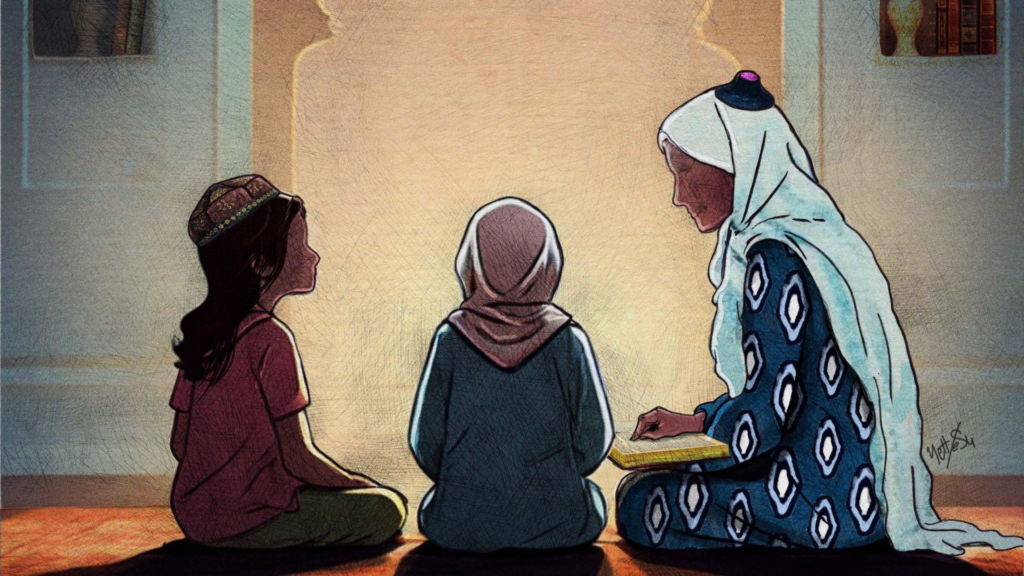Twenty Years for Learning the Quran: Uyghur Women and Religious Persecution

February 1, 2024 | 7:00 a.m. EST
For Immediate Release
Contact: Omer Kanat +1 (202) 790-1795, Peter Irwin +1 (646) 906-7722
The Uyghur Human Rights Project’s (UHRP) new research report, Twenty Years for Learning the Quran: Uyghur Women and Religious Persecution, presents compelling evidence of the systematic oppression faced by Uyghur women, revealing stark persecution on the basis of religion. Women’s religious practices across the board, including studying religious texts, gatherings, daily prayer, and the choice to wear the hijab, have been explicitly criminalized.
“Our report provides detailed information on hundreds of Uyghur women persecuted for their religion. Many of them were condemned to long terms in prison for the ‘crime’ of learning a few verses of the Quran when they were children. The Chinese government has taken respected women of faith, senior community leaders, and educated young women, and subjected them to the dehumanizing regime of the region’s camps and prisons,” said Professor Rachel Harris, a co-author of the report.
Abduweli Ayup, co-author of the report, added, “We show how a colonial regime reengineered Uyghur communities by removing female leaders from society. Women were targeted as mothers, as teachers and as preservers of Uyghur traditional knowledge.”
“This report breaks new ground,” said UHRP Executive Director, Omer Kanat. “Persecution of women for practicing the Islamic faith deserves worldwide condemnation and sanctions. It is a central tool of the Chinese government’s genocide, along with sexual assault in detention, forced sterilization and abortion, and coerced marriages.”
“The suffering of Muslim Uyghur women is heartbreaking and necessitates the world’s attention,” said Afeefa Syeed, Senior Fellow at the Center for Women, Faith & Leadership, at the Institute for Global Engagement. “This new UHRP report lays bare the targeting of Uyghur women for imprisonment and worse, simply for practicing the basic tenets of their faith.”
Disturbingly, the report highlights cases of elderly women, some over 80 years old, being detained and imprisoned for religious learning that occurred two or three decades earlier, often when the accused were as young as five or six years old. Sentences were frequently applied retrospectively, for actions such as studying the Quran or wearing a hijab, which were deemed “illegal” only after the fact.
The imprisonment of büwi and ustaz (female religious leaders) shows the magnitude of the human rights crimes. UHRP documents the detention of 91 women from a single county who had been officially registered by the state as büwi. The imprisonment of female religious leaders and the criminalization of children’s religious socialization, in which women play a significant role, contribute to the accelerated disintegration of Uyghur communities.
Professor Harris added, “These actions stem from a governmental approach to Uyghur women which takes their bodies as the property of the state, denies them voice and agency, and subjects them to organized violence in the name of national security and stability.”
Twenty Years for Learning the Quran makes ten recommendations to concerned governments, multilateral bodies, and civil society, as well as to the Chinese government. UHRP calls on:
- Parliamentarians to advocate for the release of Uyghur women, including büwi and ustaz, as Religious Prisoners of Conscience, urging disclosure of their health and whereabouts.
- Governments and multilateral bodies, as well as women’s rights campaigns, to demand accountability and cessation of torture, enforced disappearance, and imprisonment inflicted on Uyghur and Turkic women.
- UN officials, including the Secretary-General and Special Rapporteurs, to publicly address gender-based crimes in the Uyghur region and press the Chinese government to immediately release arbitrarily detained individuals.
Read More:
UN Committee Grills China on Widespread Gender-based Violence Targeting Uyghur Women, UHRP Statement, May 12, 2023.
Parallel Submission to the UN Committee on the Elimination of Discrimination against Women (CEDAW), UHRP Submission, April 13, 2023.
Forced Marriage of Uyghur Women: State Policies for Interethnic Marriages in East Turkistan, UHRP Report, November 16, 2022.
Women’s Chay Gatherings in Kazakhstan: Sustaining Identity in Migrant Communities, Rachel Harris and Zulfiyam Karimova, in Mirsultan, Aysima, Schluessel, Eric and Sulaiman, Eset, (eds.), Community Still Matters: Uyghur Culture and Society in Central Asian Context. København: NIAS Press, pp. 203-217, July 2022.
Video: Targeted Oppression of Women in China’s Genocide in East Turkistan, UHRP Event, March 8, 2022
On International Women’s Day There Is Nothing for Uyghur Women to Celebrate, Zubayra Shamseden, UHRP Chinese Outreach Coordinator, The Diplomat, March 8, 2022
Video: China’s Persecution of Uyghur Imams: New Evidence of Imprisonment and Detention, UHRP Co-Sponsored Event. June 1, 2021
Islam Dispossessed: China’s Persecution of Uyghur Imams and Religious Figures, UHRP and Justice for All Report, May 13, 2021
“I Was a Teacher in a Concentration Camp”: Women and the Uyghur Genocide, Zubayra Shamseden, UHRP Chinese Outreach Coordinator, Bitter Winter, March 13, 2021
Uyghur Women Are China’s Victims—and Resistance, Simina Mistreanu, Foreign Policy, March 12, 2021
Deception, Pressure, and Threats: The Transfer of Young Uyghur Women to Eastern China, UHRP Report, February 8, 2008
